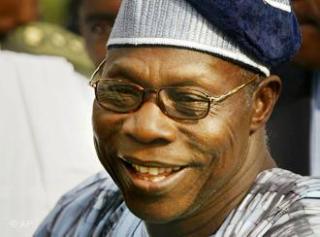South Sudan armed opposition welcomes publication of AU report
October 30, 2015 (ADDIS ABABA) – The armed opposition faction of the Sudan People’s Liberation Movement (SPLM-IO) under the leadership of former vice president, Riek Machar, said they applauded the publication of the recently released African Union (AU) report on atrocities committed in South Sudan from 15 December 2013 in the national capital, Juba, and other towns.

He said it was clear in the report that the massacre of thousands of members of the Nuer ethnic group was a “state policy” which was well coordinated and sponsored by president Salva Kiir’s government.
“In the AU report two crucial matters are very clear. One, that the massacre was a state policy perpetuated, coordinated and sponsored by the government’s top leadership using its inner circles in the army, police, national security and Dinka ethnic militia group. Two, there was no coup attempt as alleged, and therefore the concocted narrative about the coup was simply a pretext so as to carry out the massacre by the regime of President Salva Kiir targeting an ethnic group,” Dak said.
The AU report insisted on the systematic nature of the attacks targeting the Nuer ethnic group and described it as a “State policy”. Also it says that there was “no evidence pointing to a coup attempt” which sparked the massacre.
Dak said it was unfortunate that the African Union report shied away from declaring the mass killings in December 2013 a genocide targeting the Nuer ethnic group, arguing that a genocide is “the deliberate and systematic extermination of a national, racial, political, or cultural group” saying this was the perpetuated act in Juba against the Nuer ethnic group.
He however stressed that the AU should now push through the mechanisms recommended in the report and in the peace agreement signed in August to establish a hybrid court to try those responsible for the mass murder of members of an ethnic group.
Meanwhile, in its report the AU commission said there were reasonable grounds to believe that no crimes of genocide were committed during the mid-December 2013 conflict despite the seeming ethnic nature and dimension the South Sudanese war.
“Despite the seeming ethnic nature of the conflict in South Sudan, the Commission during its consultations with various groups and individuals did not have any reasonable grounds to believe that the crime of genocide was committed during the conflict that broke out on December 15, 2013,” says the report.
It however concluded that some of the serious violations of human rights could amount to crimes against humanity were committed during the conflict and that further investigations be done to identify those responsible.
The report also said the two warring factions involved in the South Sudanese conflict committed war crimes in Bor, Bentiu and Malakal towns.
Dak also applauded the recommendations of the AU report including on the political and institutional reforms in the country, saying this has also corresponded with the reform agenda provided for in the peace agreement signed between the rival parties in the country.
He said the opposition leadership called on the AU and the wider international community to support and facilitate the implementation of the recommendations in the report.
(ST)
